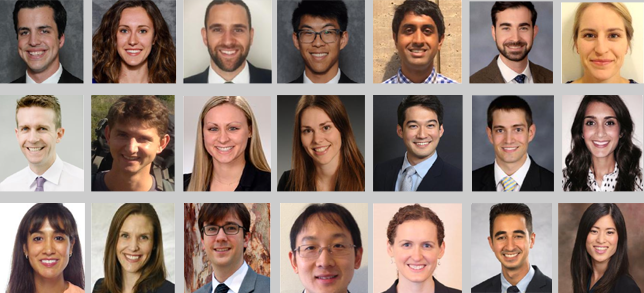Our New Residents: Repleting Potassium Today, Changing the World Tomorrow
I arrived at UCSF to start my internship 33 years ago last month. (A word of warning to those who think you can actually plan your life: I had every intention of returning to the East Coast after three years, plans that were quickly – and happily – derailed.) Recognizing, of course, that our memories tend to airbrush out the exhausting and painful parts of residency training, I can tell you that I still get a special thrill watching the arrival of a new crop of interns. I’m excited for them, since they are beginning one of the richest, most meaningful, and most transformative experiences of their lives. I also know that they will leave our program better than they found it.
I also know something else, something that won’t be obvious to any of the new interns as they struggle to return pages and replete potassiums: They will change the world of healthcare.
How can I be so sure of this? First, this year’s crop of medicine interns is quite special – as they are every year. They come from the nation’s top medical schools, have extraordinary board scores, and were all at or near the top of their class.

But the richness of their experiences and the breadth of their passions is even more impressive than their pedigrees. From reviewing a survey they completed, I see that their academic interests range from cancer genomics to health disparities. Their hobbies range from Little League umpiring to bird watching. Their favorite books range from The Old Man and the Sea to The Indispensable Chomsky. Their preferred superpower? Of course, there was the usual interest in teleportation. But I was particularly taken by the intern whose preferred superpower was “eating quickly.” And the other for whom it was “changing cloth diapers.”
These new interns don’t know it yet – and they’ll be too busy doing their jobs to give this a moment’s thought this year – but they and their colleagues are destined to be the future leaders in American medicine. I know this because I see what happened to the residents who trained at UCSF in my era (mid-1980s). Here is where some of them are today:
The president of the Gates Foundation (and our former chancellor), Sue Desmond-Hellman, was my chief resident; Gates’s President of Global Development, Chris Elias, was in my residency group. (I have warm memories of many trips to Oakland for barbequed ribs, about ten of us packed into the back of Chris’s seedy and seatless VW van.)
The founding CEO of the California Healthcare Foundation, Mark Smith, was also in my residency group; the Foundation’s current CEO, Sandra Hernandez (also the former SF Health Commissioner), came through our residency a year later.
Speaking of health commissioners, the director of Los Angeles’s Department of Health, Mitch Katz, was a UCSF resident. So was the current head of the FDA, Rob Califf. Rob, a cardiologist, previously ran Duke’s clinical research institute. And speaking of prominent cardiology researchers, Eric Topol, who runs Scripps Clinic’s translational research enterprise, was a few years ahead of me, and the nation’s top cardiology outcomes researcher, Yale’s Harlan Krumholz, came a year after me.
In addition to Califf, a remarkable number of Washington policymakers trained in our residency. Andy Bindman, director of the US Agency for Healthcare Research and Quality (AHRQ), was a year behind me. Our former chief of DGIM, Eliseo Perez-Stable, who now runs the NIH’s Institute for Minority Health and Health Disparities, was a few years ahead. Closer to home, our dean for education, Catherine Lucey, was my chief resident; she shared an office with Julie Gerberding, former CDC director and now an Executive Vice President at Merck. Harry Hollander, our residency director, came through a bit earlier, as did Warren Browner, now CEO at Cal Pacific.
And two of my five fellow chief residents, Paul Noble at Cedars-Sinai and Don Rockey at the Medical University of South Carolina, are now chairs of medicine at those institutions.
These are just the folks who come quickly to mind, and who completed their residency in my era. If we expanded the time frame, we’d find even more remarkable leaders. And these, of course, are on top of the contributions of the countless residents who went on to be superb physicians, teachers, researchers, policymakers, and leaders in their own communities.
I have every reason to believe that our current housestaff will leave an even greater mark on American, and global, healthcare. While it will be great working with them during these formative years, it will also be fun and gratifying to see the amazing things they will accomplish in their careers and lives.

Robert Wachter, MD
Interim Chair, Department of Medicine